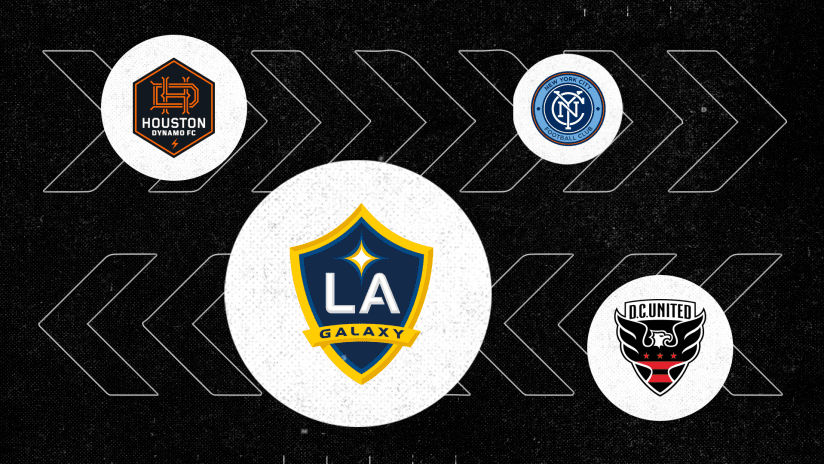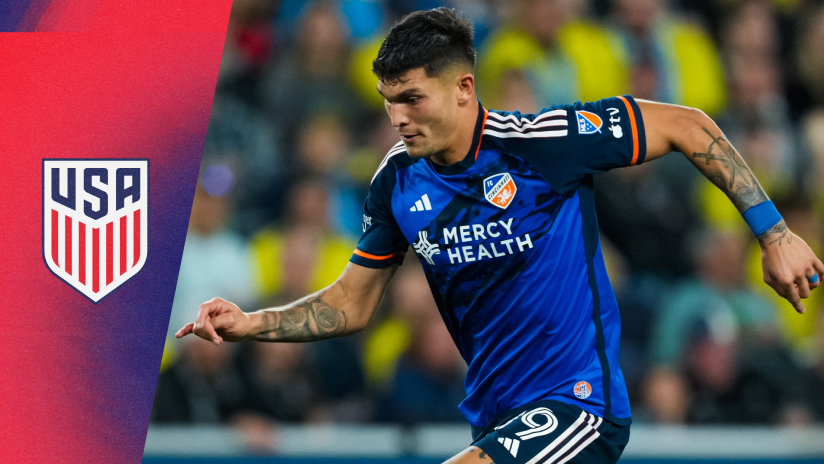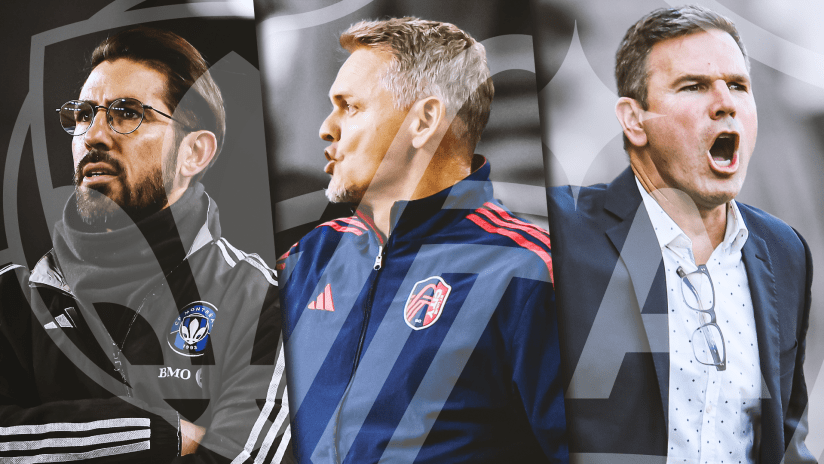You need a certain kind of confidence to wear the No. 10 shirt at Santos, the one made legendary by Pele over two decades at the club as he became arguably the greatest player this game has ever seen. Yeferson Soteldo may be diminutive in height, but he isn't short on self-belief.
Soteldo arrived at Santos, took the No. 10 and excelled over a couple of seasons in Brazil, being named to the 2020 Copa Libertadores Best XI. A focal point of the Venezuela national team and a star for one of Brazil's biggest clubs at age 23, Soteldo's career was in a great spot this spring.
He was also about to make a big change.
Santos were yet to pay Huachipato money owed in the transfer to originally acquire Soteldo from the Chilean club. They were facing transfer sanctions from FIFA until their debt was cleared. Toronto FC spotted an opportunity and prepared an attractive package and opportunity for the attacker.
A player of his age and profile hasn't often come to MLS. Toronto deserve most of the credit for swaying him, but their pitch was made easier thanks to Josef Martinez, Soteldo's compatriot who has become an MLS superstar at Atlanta United.
“Josef Martinez is like my brother, I’ve seen the success he’s had,” Soteldo told media when he was introduced as Toronto FC’s newest Designated Player. “That’s what I want in Toronto.”
Unlike Soteldo, Martinez's MLS arrival wasn't heavily hyped – but it didn't take long for that to change.
Martinez set the league ablaze not long after his debut, becoming one of MLS' singular dominant forces, mean-mugging goal after goal after goal. In 2018, he set a new league record for goals scored, winning Landon Donovan MLS MVP honors and leading Atlanta to MLS Cup alongside Miguel Almiron. In 2019, he almost single-handily dragged Atlanta to two trophies and the Eastern Conference final despite reported dysfunction all around him. Without him in 2020 (ACL tear), the Five Stripes crumbled.
This is how markets open up and paths become even easier to traverse in the globalization of soccer's transfer network amid the age of digital scouting and remote communication. General managers and pundits around the league took notice of Martinez's rise and Venezuela's brightest stars, rising talents and everyone in between, saw it as well.
“Josef's influence was a lot for me," Soteldo said. "We’ve known each other as kids, I remember seeing him play in Caracas when I was a ball kid (for the club.) He means a lot to me. Everything has worked out wonderful for himself, he has opened the door for a lot of Venezuelans to come to MLS."
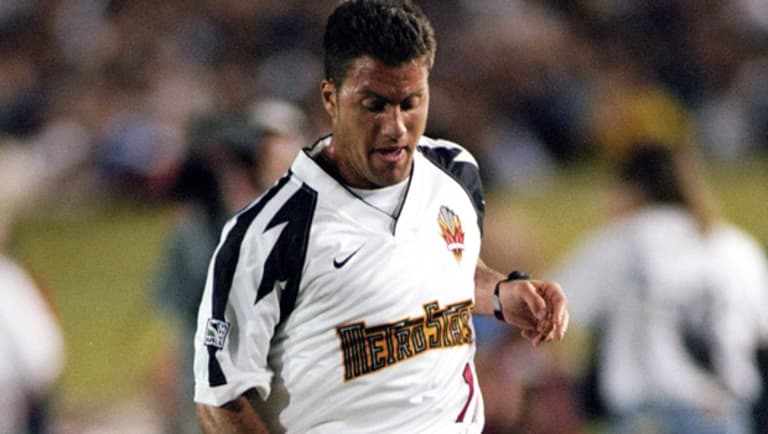
Josef Martinez wasn’t the first Venezuelan to play in MLS, of course. Far from it. That was now-Portland Timbers head coach Giovanni Savarese, who led the lines for the New York/New Jersey MetroStars during the league’s inaugural season back in 1996.
Savarese already made his professional debut in his native country before heading to the United States for college, starring at LIU Brooklyn. After college, and before MLS formed, Savarese stuck around the area and played in the USISL for the Long Island Rough Riders in the two years leading up to MLS' inaugural season, being named MVP in 1995 as he played alongside Tony Meola and now-Toronto head coach Chris Armas.
“I never thought when I was in college that there would be Major League Soccer in the United States,” Savarese said. “I came here for an education, then I’d see what happens. And at that time, there were very few Venezuelans playing outside of Venezuela.”
Venezuela wasn't much of an exporter of soccer players abroad, but that's changed during the South American country's soccer maturation. In 1995, when Savarese was busy winning USISL MVP, his country got ranked by FIFA as the 125th-best international team in men's soccer. La Vinotinto climbed to 67th a decade later and, in FIFA's latest rankings, they sit 30th in the world.
Things are different a bit different now, both for MLS and Venezuela.
“Players understand this a league that is competitive, where you can earn good money and have a great situation with your family,” Savarese said. “There’s great infrastructure, great fans and great stadiums. Players understand ‘Wow, this is a great option for me.’"
Savarese was selected by the MetroStars in MLS' inaugural player draft and scored the first goal in club history. He was a fan favorite and a trailblazer in MLS, making 116 regular-season appearances from 1996-2000, scoring 51 goals. He laid the groundwork and foundation for the evolution of MLS looking to Venezuela as a viable market, with the likes of Alejandro Moreno and others soon to follow.
Martinez took that foundation and built his own castle.
“Look at Josef Martinez,” Savarese said. “He became a king in Atlanta.”
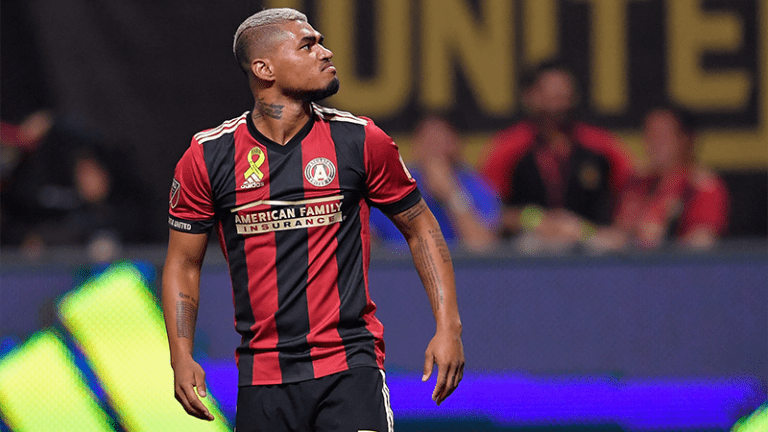
Other sporting executives around MLS agree, too. Josef Martinez's influence on Venezuelans coming to MLS has been invaluable.
Toronto GM Ali Curtis cites it in their pursuit and signing of Soteldo, given the players' relationship. Soteldo and Martinez share an agent, who also represents TFC's Venezuelan winger Erickson Gallardo, making the conversations easier and negotiations more familiar.
“I do think Josef Martinez has been an excellent addition to Atlanta United and Major League Soccer,” Curtis said. “I give Atlanta a lot of credit, it’s helped open the door. … The same way we talk about different Americans and Canadians abroad, it creates different pathways for domestic players. Josef Martinez has been a pioneer in that respect.”
Last season, Nashville SC acquired La Vinotinto forward Jhonder Cadiz. The 25-year-old was technically a Benfica player, but had spent time on loan with Dijon in France before joining Nashville on loan.
Martinez's name came up quickly before Cadiz signed.
“There is no question that Josef Martinez heightened the profile of MLS, specifically in Venezuela,” said Nashville GM Mike Jacobs. “One of the first things I talked about with Jhonder the first time we spoke was about him mirroring the success that Josef had, whether he could do that or not. When your country’s best player has success in a league, it makes it more viable for other players.”
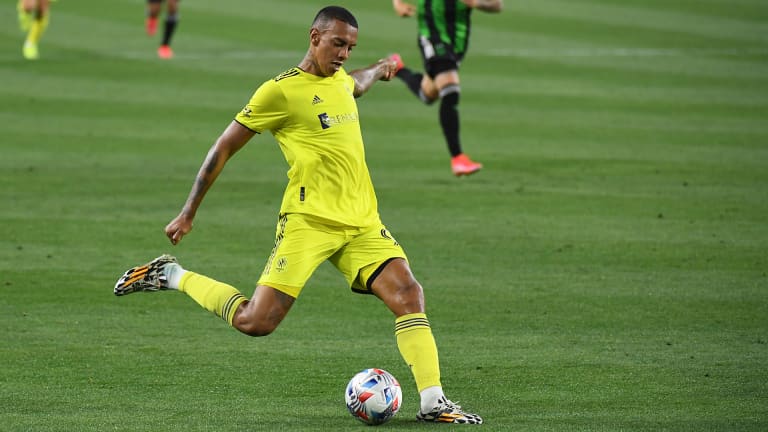
Soteldo, Cadiz and Martinez arrived as Designated Players, with big expectations and fanfare. That sight never gets old to Savarese, who began his career in MLS on a contract that didn't become guaranteed until the summer every year.
“It was difficult for me at first to prove (Venezuelans) were worthy,” Savarese said. “Now, I’m so proud that Venezuela is a defined, important market for MLS. It’s where you can find players at a good level, they can be DPs or role players. … It’s worked very well for both sides. It’s definitely a long way from where it started with me, it’s a completely different league with a completely different way of scouting.”
The same offseason Martinez arrived, New York City FC acquired Yangel Herrera on loan from Manchester City immediately upon signing from Atletico Venezuela. Herrera spent two seasons in MLS, impressing as an integral member of NYCFC's midfield.
That opened a new market as well.
Whereas Atlanta acquired Martinez from Italian club Torino, Herrera came directly from Venezuela. Part of that is a natural progression, with MLS clubs expanding their reach and influence in South America – and it made sense Venezuela would be an attractive market following successful ventures to Argentina and Colombia. Herrera gave that expectation a baseline for future acquisitions and scouting.
“We were among the first in recent times to sign a player from the Venezuelan league,” NYCFC sporting director David Lee said. “As always in every league, when you see players who impact your league from somewhere that hasn’t been scouted too frequently, clubs can benchmark that league. It’s a market that teams hadn’t typically signed players from, but there are a lot of good talents there.”
Since Herrera's arrival in February 2017, 17 MLS players have been signed directly from the Venezuelan league, headlined by former Real Salt Lake forward Jefferson Savarino, Philadelphia Union midfielder Jose Martinez, Portland right back Pablo Bonilla, D.C. United midfielder Junior Moreno and New York Red Bulls midfielder Cristian Casseres Jr. There were no Venezuelans signed directly from their domestic league to MLS clubs between 2010-16.
“Josef is a big part of it, being a key part of the national team and being in MLS having the success he’s had, is huge,” Lee said. “But I think teams are scouting the Venezuelan league more, where they weren’t a few years ago. Like when Jamison Olave went to Salt Lake, we saw a proliferation of Colombian center backs come to MLS. When teams have success within a market, others look at that market.”
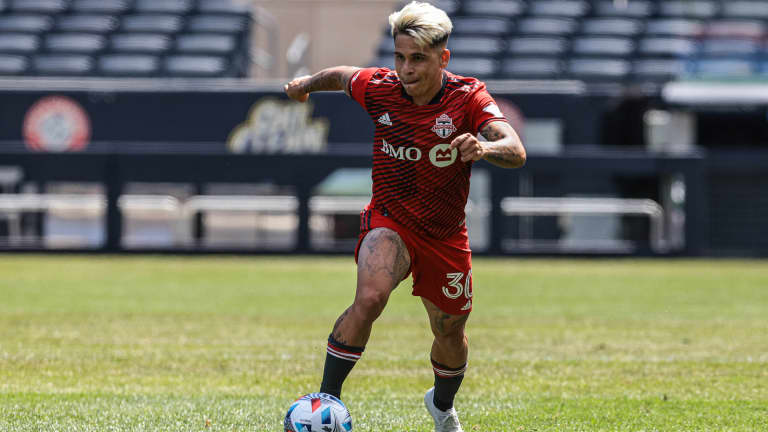
Ironically, Josef Martinez's barrage of goals (79 in 90 regular-season games and counting) has helped the opponents he's scored them against. His success and visibility in MLS have created a new path for his countrymen to follow.
It aided Toronto's pursuit of Soteldo and gave a baseline for Nashville's hopes around Cadiz.
“We hate playing against Josef when we play against Atlanta, but looking at people like Paul McDonough and Carlos Bocanegra identifying a talent like that and getting him in MLS, it has residual benefits for the whole league,” Jacobs said.
“Martinez has really helped open the door for Venezuelan players,” Curtis added. “He’s done a lot, he’s been so electric.”
What started with Savarese’s generation, when Venezuelans came to the US for college and took a more circuitous journey to MLS, a direct path has been clearly paved. High-end national teamers like Josef Martinez, Soteldo and Cadiz; rising then-teenagers like Savarino, Casseres and Bonilla; talents of all ages from the domestic league, like Jose Martinez and Herrera.
There are numerous options and paths for Venezuelans to MLS, first blazed by Savarese and later emboldened by Josef.
“I’m so proud,” Savarese said. “When you have to work so hard to show there’s value in the Venezuelan player and you see more players are coming here, doing well, I feel very proud they’re honoring the country. Their work ethic, their desire. Maybe some aren’t thinking about Venezuela, but they’re still representing Venezuela, they’re putting our country in a better light. I’m extremely proud.
"Every time I see a Venezuelan on the other team, I’ll talk to them, because I’m proud of them. Even though they’re rivals for 90 minutes, but at the end, I wish them well. I want them to keep doing well.”

